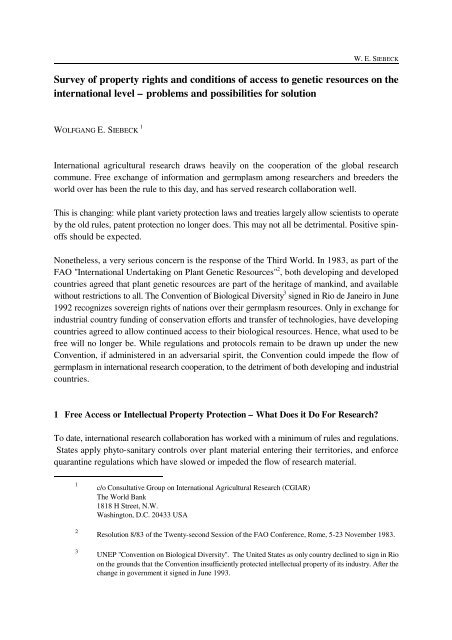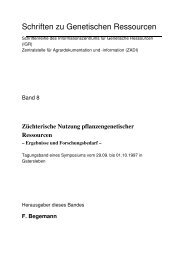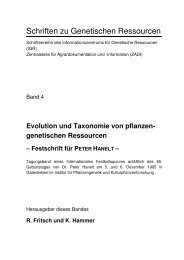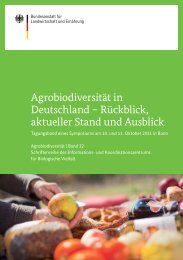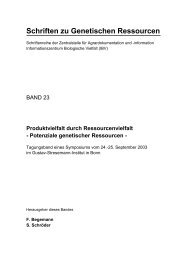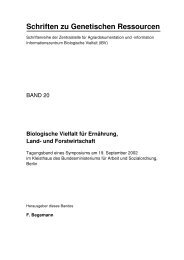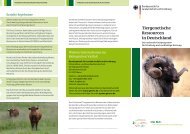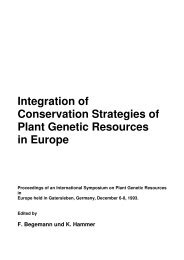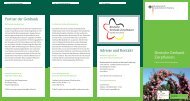Zugang zu Pflanzengenetischen Ressourcen für die ... - Genres
Zugang zu Pflanzengenetischen Ressourcen für die ... - Genres
Zugang zu Pflanzengenetischen Ressourcen für die ... - Genres
Sie wollen auch ein ePaper? Erhöhen Sie die Reichweite Ihrer Titel.
YUMPU macht aus Druck-PDFs automatisch weboptimierte ePaper, die Google liebt.
W. E. SIEBECK<br />
Survey of property rights and conditions of access to genetic resources on the<br />
international level – problems and possibilities for solution<br />
WOLFGANG E. SIEBECK 1<br />
International agricultural research draws heavily on the cooperation of the global research<br />
commune. Free exchange of information and germplasm among researchers and breeders the<br />
world over has been the rule to this day, and has served research collaboration well.<br />
This is changing: while plant variety protection laws and treaties largely allow scientists to operate<br />
by the old rules, patent protection no longer does. This may not all be detrimental. Positive spinoffs<br />
should be expected.<br />
Nonetheless, a very serious concern is the response of the Third World. In 1983, as part of the<br />
FAO "International Undertaking on Plant Genetic Resources" 2 , both developing and developed<br />
countries agreed that plant genetic resources are part of the heritage of mankind, and available<br />
without restrictions to all. The Convention of Biological Diversity 3 signed in Rio de Janeiro in June<br />
1992 recognizes sovereign rights of nations over their germplasm resources. Only in exchange for<br />
industrial country funding of conservation efforts and transfer of technologies, have developing<br />
countries agreed to allow continued access to their biological resources. Hence, what used to be<br />
free will no longer be. While regulations and protocols remain to be drawn up under the new<br />
Convention, if administered in an adversarial spirit, the Convention could impede the flow of<br />
germplasm in international research cooperation, to the detriment of both developing and industrial<br />
countries.<br />
1 Free Access or Intellectual Property Protection – What Does it Do For Research?<br />
To date, international research collaboration has worked with a minimum of rules and regulations.<br />
States apply phyto-sanitary controls over plant material entering their territories, and enforce<br />
quarantine regulations which have slowed or impeded the flow of research material.<br />
1<br />
2<br />
3<br />
c/o Consultative Group on International Agricultural Research (CGIAR)<br />
The World Bank<br />
1818 H Street, N.W.<br />
Washington, D.C. 20433 USA<br />
Resolution 8/83 of the Twenty-second Session of the FAO Conference, Rome, 5-23 November 1983.<br />
UNEP "Convention on Biological Diversity". The United States as only country declined to sign in Rio<br />
on the grounds that the Convention insufficiently protected intellectual property of its industry. After the<br />
change in government it signed in June 1993.


